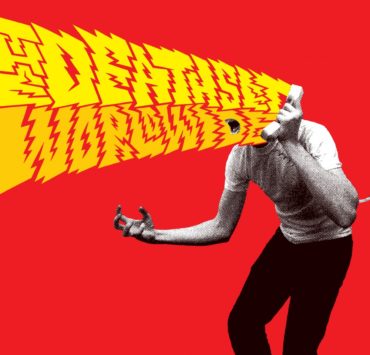‘Walk the Line’, the musical biopic on Johnny Cash’s life has recently received its European release. Starring Reese Witherspoon as June Carter Cash and Joachim Phoenix as the Man in Black, the film is an attempt by Hollywood to tell the chronicle Johnny Cash’s life, without a doubt one of the world’s most intriguing musical icons.
There can be no doubt that Johnny Cash does indeed deserve such an accolade. He was the king of country music, writing songs that were equally loved by country fans, folk fans and rock and roll fans. He did possibly one of the most punk things ever by playing in prisons up and down the country. He defended the rights of the downtrodden, starred in biblical films and finally reinvented himself with the help of Rick Rubin and sang songs that squarely dealt with his, and by implication our, mortality.
The film starts as a prolonged flashback. All the major events are there: the death of his brother, his military service in the airforce, coming back to the states and his first marriage, his job as a failed salesman. It then moves on to focus on his music, early tours with Elvis and the Carter family, his first tastes of the drugs which would later bring his career to a near end. Early on the love interest June Carter is introduced. Johnny then spends most of the film either trying to love her or whacked out on drugs. He comes clean and then the girl agrees to marry him. The film ends.
Throughout the film the songs are sung by Reese Wetherspoon and Joaquin Phoenix. And to be honest they are more than competent, and by the end of the film you’ve nearly forgotten that they are covering the songs and are not the real thing. You may have expected my criticisms to have focused on the singing. However, it is the actual story which truly deserves the most criticism.
The producers have presented a Hollywood version of the Johnny Cash story. It is loosely based on the life and times of Johnny Cash. “In no way is it supposed to be a documentary”, I hear you say. You are right but I feel that the story is exciting and interesting enough to have merited being told as it was. Perhaps the biggest omission from the story is the time when Johnny decided to end his life by taking a bunch of pills in a dark cave and just stay there and die. Fortunately for music, Johnny Cash had a revelation and was ‘reborn’. Emerging from the cave and determined to be a new man, Johnny Cash then placed religion as one of the cornerstones of his life. This area of Johnny Cash’s character is only vaguely alluded to in the film.
Perhaps the greatest omission in the film is the fact that it ends so abruptly in the middle of his career. There is no mention of his slow downfall as his songs fell out of favour with an increasingly conservative country music scene or his television series (which could be considered trailblazing at the time). Neither is there a mention of some of his truly terrible albums (‘Chicken in Black’, the Christmas ones, some of the biblical/gospel albums). Equally his brilliant cameo performance in Colombo is never discussed. Neither is his near death experience involving an ostrich. The film shows Johnny Cash a reformed character but he battled with his medication addiction periodically throughout his life. His ‘re-birth’ as a cultural icon, with the American albums produced by Rick Rubin is also ignored, June’s passing and the sixty songs he recorded in between her death and his are viewed as unimportant.
I mention all of the above because they show just how a multi-faceted character Johnny Cash was. He wasn’t the “Man in Black”, he was the “Man in many Shades of Black”. And it is this that I find most interesting about his character. The Johnny Cash myth will now be framed by ‘Walk the Line’. This is unfortunate as it refuses to acknowledge the very elements which made Johnny Cash the mysterious, frustrating, brilliant, religious, musical icon in the first place. If you have read this and felt that I have been too harsh on the film, then you are probably right. It is a very good film with some fine musical and acting performances. It’s just not the full story.
